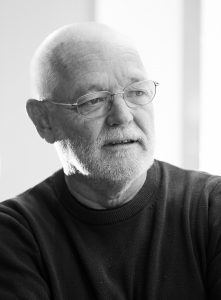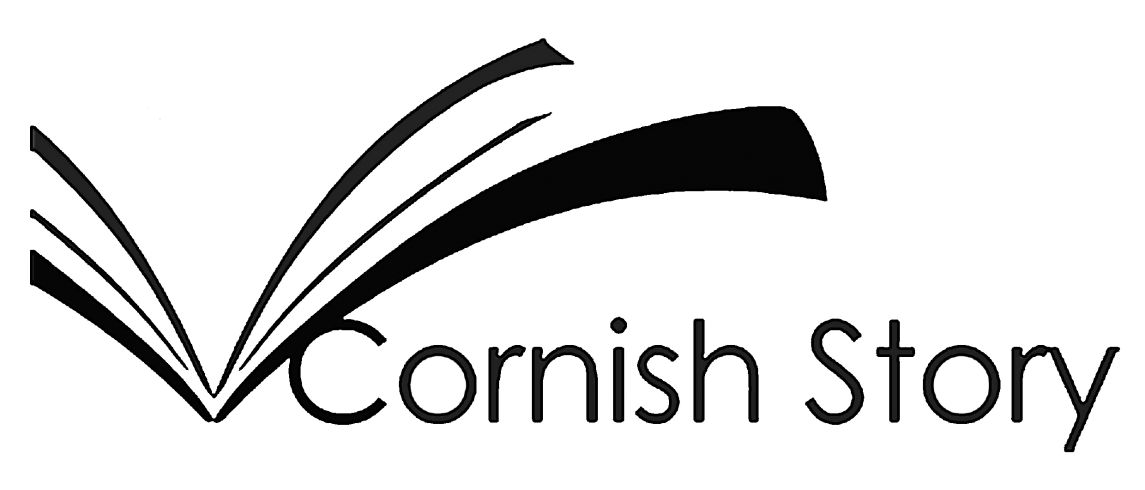Another poem from the pen and voice of one of Cornwall’s foremost poets
Click above to listen
National Minority
A powerful sun rose and stretched,
Pushing back the clothes of cloud
With which the old Earth wraps
Herself to sleep in the doorway
Of orbit’s midnight and early hours –
The ivy bush on the garden wall
Opened leaves and arms for tomorrow
And filled the ears of infant barley
With the parley and song of the sparrow
To fill the lane and the air –
Such a small brown horde of bird
And such a brightly hopeful gossip,
And such defiance of the magpie word
Whose clacking sermon may terrorise
The laurel, but ivy remain undeterred –
And evaporating nimbus crumpled
And left in an eyebath of sweat,
The old custodian of custom and yarn,
Noting the untidy habits of town,
Turns to run home his Financial Times,
And rush-hours his chilblain soles
And their attendant hard-skinned heels
To read and chew old oats
In blueberry and warm-milked bowls,
And sipping infusions of Chinese leaf
To read of the holes left in bolts
And well-cut patterns of Savile Row,
In Treasury budgets by maverick
Renegades of hippy summers
Chanted in fields of incense long ago –
And along the valley road and river,
The discount empire clicks, collects
But refuses point-blank to deliver,
And pines stand in lines, and larch
March past, all in forestry parades.
Small and dying flowers decorate
The broken spars of fences, the crash
And fall down treachery’s slopes
To mangle and moan by the railway,
And, danger noted, the distance
Carries our landscape eye far away,
Into the haze of eruptive breasts
Which masquerade as hills, and shade
The curves of barrow and monolith
And spell the early raid of upright apes
Who, caught unawares on granite stairs,
Between crowded backyard houses
Which curtain, steam and tentatively sip
First bean, then grilling bread, and keep
Songs of sparrow alive in their head.
We speed by the boarded chapel,
Its fading names on lichen stones,
Echoes of thunderous homilies between thighs
Of harshly unforgiving moors, and doors
Slammed tight, and light applause
Of ideologies running rampant
Over simplicities of faith, and yews
Spreading clues over garlic floors
Of burials’ ground, and memorials
Of leaden-listed ebbing wars.
O how we rush and torque our cars
And tune our engines, grade
Our inclines, declines and cambered
Bends, as if Speed and Distance
Were old friends, and Time a servant
To be underpaid and grudged
An occasional day to explore
Mysteries of self and solemnities
Of families photographed and framed
To smile and stare on a mantle shelf
But never, when in need of care
Or simply wanting a child close-by,
To be never in need of explanation
But yet knowing instinctively
What it means to be quietly there.
We speak fleetingly on the crown
Of a long quick windmill corner
Of pausing to purchase cups of tea,
To sit and silently imbibe the age:
Oh! Golden whistle blowing steam,
Whistling warning steps to hold back,
‘Go not near the platform edge!’
To receive the felon’s plea, Heritage
Displayed, curated, in the dock –
‘The Railway, M’Lud? Not guilty!’
And on, on, a regiment at gallop,
Along the Glyn, past Trago,
Through the veins and arteries
Of Lyskerres – Webb’s thankfully
Gainfully occupied, though guests
No longer ring Reception’s bell
Or register clandestine lovers’ nights,
Or turn blind barmen’s eyes
From spittle palms and deals shook
And nothing entered in the book –
And past the death of ancient farms,
The party-dressed chiffon barns,
Broken syllables of Cornish names
Painted-out by corporate tribes
To assert and emphasise capital gains –
Everything, from pale tip of May
To blacktop curves of betrayal’s
Dual carriageway, to cattle-grid stanzas
And saleroom bonanzas of estates
And freehold property in distant hotels,
Everything has become what it’s not,
And everything is silent behind UPVC
And silvered-slate website addresses,
Everything looks tidy – the odour
Of agriculture, slurry spread on soil
To reward the geology and seasons
For arable and pasture, which floods
Like East Wheal Rose’s sudden water
The chambers and stopes of our lung,
And oohs and aahs our nasal – why!
Such flings writs on farming tables!
Demands for perfumes to ease
The stench of tourism’s landfill,
The modernisation of husbandry
To re-gender the spirit of production!
And we come to the tired town
To parade our art and poetry
And skilfully fashioned names –
I am Vyager gans Geryow – we stand
In silent rows to honour Bryallen,
And Mab Stenak Vur blows webs
And dust off ancient history
To swell the cracking stucco
And closed-down Moondance,
The plastic Ming Chinese Kitchen –
And the Mayor goes through
Cold motions of civic pretense,
And we make dates, make jokes
And sip small cups of civilian tea
And mourn the death of civility
And receive the Treasurer’s bashfully
Described uneventful accounts
And reports of working groups,
Of fox and mildew in the archives,
Of communications and ceremony –
And all is well! We have proclaimed
That we will return for autumn’s
Ushering-in of turning leaves –
And in the Cornish Bakery, bright
With tied-back hair and teeth,
In the shadow of the pastry factory
Which despoils our five thousand years
Of defiantly saffron and steak,
Hevva cake and hogs’ pudding cookery,
The young maid looks me in the eye –
‘Of course, we made your pasty,
We kneaded and rolled, diced
And sliced, and precisely warmed
The oven – is there anything else?
Thank you for your custom!’
And in the lee of mass-production,
Under the marketing hoarding,
Between the murals masking poverty
And decay behind the boarding
And estate agency commissions
For conveyance and permissions
To remove, rename, re-purpose,
Regenerate, and in morbid societies
In backrooms of planning-gain
And heritage lottery halls, to venerate
Fragments and researches, sounds
Of voices and translated pages –
Oh! All the sadnesses and regrets
Of ages imperfectly recorded,
Of a language reduced to serviettes
And tea-towels and second-home
Names in council terraces.
But, the ivy’s full of sparrow,
The swans are upon their nest
And the river has combed its tangles,
The morning chill, the baby’s howl,
Her incessant discomfort of teeth,
The tribe gathers, parades, drinks tea,
And we commiserate with widows
And temper the blades of belief –
We annually, generally meet
To unanimously vote thanks
To Treasurer, Secretary and Chair,
And we make a parade in New Street
To remind old bones we’re there!
‘Eus Cres?’ the Grand Bard demands.
‘Cres!’ we cry, once, twice, thrice!
To compass points the Horn declares,
‘Clew!’ we subdue the North
And rouse the West. ‘Cres? O ez!’
And the quiet comradeships of battles
Fought and won on fields of youth
Drop the guards of greying warriors
Who ask after health and know
That all here share our common truth,
Which is not so in the world out there.
There we show papers, and declare
The proof of who we know ourselves to be
And listen to our jailers proclaim that we
Are, as never before, completely free!
‘Oh yeah?’ the sparrows repeat the refrain.
‘Oh yeah?’ BBC TV sneers once again.
‘Oh yeah! And where is this mythical pain?’
The psycho-cultural-intangible consultant
Watches window dribbles of April rain!

Vyager gans Geryow (Bert Biscoe) lives in Truro. He is a poet and songwriter whose work draws on his interest in history, politics, social justice and language. He represents the people of Moresk & Trehaverne on Truro City Council, He served as an elected member of Cornwall Council for about 30 years, and as a member of the late Carrick District Council. The Ward was formerly called ‘Moresk’ – an unbroken link from civic administration to the hurried escape of Tristan and Iseult from the vengeful wrath of King Mark – writing a poem a day, Bert tries to invest Cornish values into the demands of modern life. His work is fun, and best read aloud – which he does whenever the opportunity arises, especially with fellow Cornish poet, Pol Hodge. ‘Living in Trurra’ he says. ‘Means that there is a constancy of running water beneath your feet – there are two clocks which ring the hours dissonantly and out of step – a good environment for poems to flourish in the cracks and shadows. Nowadays, the mullet listen attentively in the lee of the Old Bridge’.
